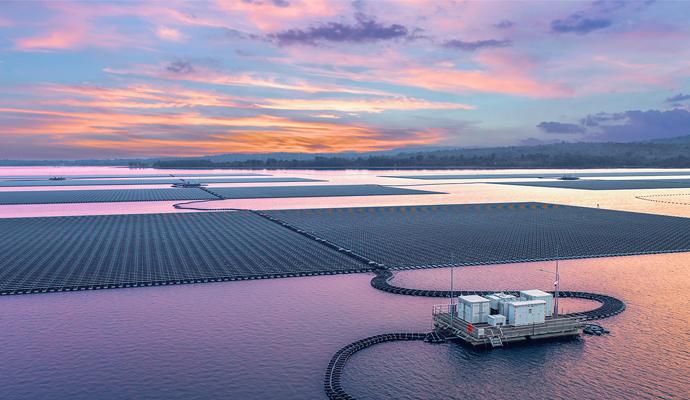After Copenhagen: Impact, Change, and Implementation
A conversation with Nick Pennell and Rob Fowler
One clear result of the United Nations Climate Change conference in Copenhagen is a renewed call for corporations around the world to accelerate their efforts on carbon footprint reduction. In these highlights, excerpted from a video conversation held near the end of the two-week conference, Booz & Company Partner Nick Pennell (who coordinates the firm’s carbon activities) and Senior Associate Rob Fowler (a global expert in climate change and carbon trading) foresee a new wave of business activity. See the full video:
Nick Pennell: If you read the media, I think they’re growing increasingly pessimistic [about the impact of the conference], probably because they’re not aware of the nature of all the discussions that are going on inside. I’m hopeful that we’ll get some form of political deal, but it’s quite clear that the process is going to take quite a few years yet to come to a legally binding deal and then to work out all the detail.
Rob Fowler: There are certainly two streams of activity here. One is around the official negotiations. That’s the government officials who are trying to find sentences, words, phrases, paragraphs to explain our aspirations.
The other side of the conversation is very much about “getting it done.” And to me, it’s very interesting to see the momentum, and the wide variety of people who are engaged in this challenge.
Nick Pennell: For most economies, businesses [represent] the majority of the economy. And, therefore, whatever we come up with here will have an impact on business. It’s vitally important that they are prepared for whatever changes happen.
[Coming out of the conference,] we won’t have a clear price-setting mechanism for carbon. So there will be more uncertainty over a few more years until the processes and the details are worked out. So in the short term we’re going to see local and regional regulation dominating.
But for any company, anywhere in the world, I think the key message is this change will happen. Companies need to be prepared for operating in a carbon-constrained world.
We work with clients in Europe and they are already affected by regulations (for example, energy taxes that already impact the way that they work), whereas for other countries that don’t operate in a highly carbon-regulated environment, this process will mean a bigger step change for them.
Rob Fowler: Governments really need to step up and understand this issue. There are going to be a lot of changes afoot across their economies, across their energy systems. And it’s going to take a lot of planning and preparation, but also a very big focus on implementation. Our advice is to get onto the implementation as quickly as possible: across energy, water, and other areas which have a big impact and can be tackled fairly quickly.
We see this [conference] as a real turning point. People who can look over the horizon can see a lot of risks, and a lot of opportunities. And they’re the people who are going to capture those [opportunities] first.
Nick Pennell: One big takeaway is the overall complexity of the situation — the number of stakeholders that are involved from business, nongovernmental organizations, and governments and regulators; and the need for all those people to be aligned and to come up with a mechanism for introducing carbon pricing that allows a steady approach to change, rather than a massive step change.![]()


